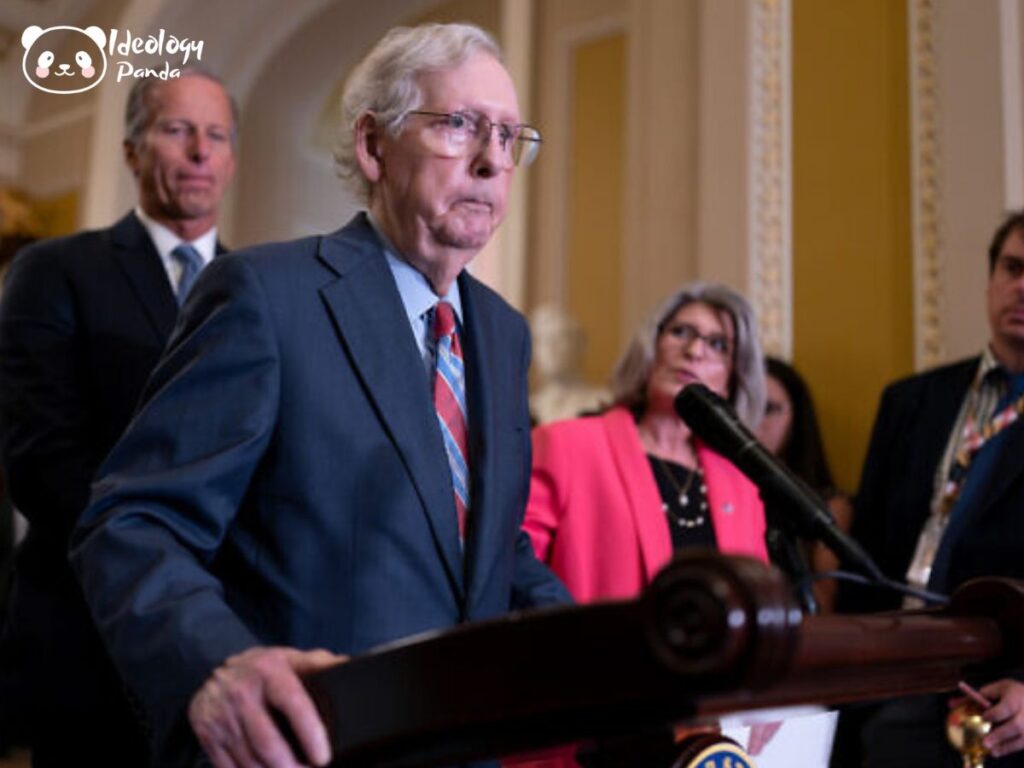In recent days, concerns about the health of U.S. Senate Republican leader Mitch McConnell have once again come to the forefront. On Wednesday, McConnell, who is 81 years old, experienced a concerning incident during a press event in his home state of Kentucky, where he froze for more than 30 seconds and later answered questions with a shaky and quiet voice. This incident has sparked renewed questions about the well-being of the longest-serving party leader in Senate history.
Senator McConnell had faced a similar episode just a month prior when he froze during a press conference at the U.S. Capitol. These recent incidents have raised questions about the ability of the Senator to fulfill his duties effectively. It’s worth noting that McConnell had been sidelined from Congress earlier this year after a fall in March resulted in a concussion and a minor rib fracture. He returned to the Senate in April after a period of recovery.
The concerns about Senator McConnell’s health come at a critical time in U.S. politics, as lawmakers are set to return to Washington from their summer recess. They face urgent tasks, including the passage of legislation to fund the government beyond September 30, when the current fiscal year ends. McConnell has traditionally played a pivotal role in negotiating and passing spending bills, and his absence could complicate these efforts. Without congressional action, the federal government could partially shut down in October.
However, there is some reassurance from the congressional physician, Dr. Brian Monahan, who stated that he had consulted with McConnell and his neurology team following the recent incident. Dr. Monahan explained that occasional lightheadedness can be expected during concussion recovery and due to dehydration. He has medically cleared McConnell to continue with his schedule as planned.
Senator McConnell’s office has reaffirmed his intention to remain in his leadership post through the 2024 election. Nonetheless, questions about his fitness for the role persist. The incident highlights broader concerns about the aging leadership within the U.S. Senate. The Senate has one of the oldest memberships among parliamentary bodies globally, with an average lawmaker age of over 64.
This issue is not unique to the Republican Party. Earlier this year, Democratic Senator Dianne Feinstein, aged 90, was notably absent from Senate proceedings due to complications from shingles. Several lawmakers, from both sides of the aisle, have called for McConnell to step aside due to these health concerns.
This situation also draws attention to the age of the highest offices in the United States. President Joe Biden, who is currently 80 years old, holds the distinction of being the oldest person to ever occupy the White House. Biden expressed his confidence in McConnell’s recovery, stating that McConnell sounded like his “old self” during a recent telephone conversation.
In the broader context of U.S. politics, this issue raises important questions about leadership transitions and the need for succession planning. While leaders bring invaluable experience and expertise to their roles, concerns about their health and ability to fulfill their duties effectively underscore the importance of ensuring a smooth transition of leadership when necessary.
In conclusion, the recent health concerns surrounding Senator Mitch McConnell serve as a reminder of the challenges posed by aging leadership in the U.S. Senate and in American politics more broadly. As the government faces critical tasks in the coming months, including funding decisions, the health and ability of its leaders to perform their duties will continue to be a topic of public discussion and debate.









